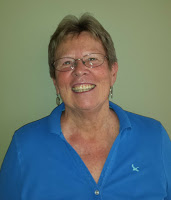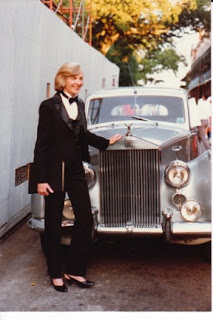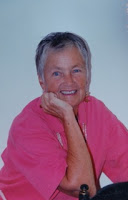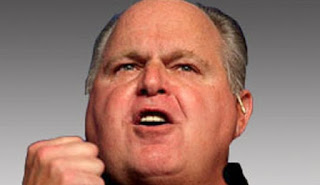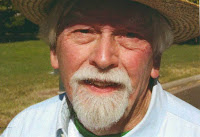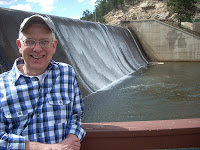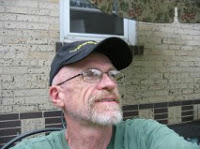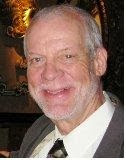South High School I was feeling a little melancholy. I was pondering the source
of these feelings; was it the fact that 50 years had passed so quickly and only
a fraction of those years remain to be enjoyed, was it the fact I had lost
touch with so many people who had once been an enjoyable part of my K-12
experience, or was it the hotel room I had stayed in because my parents were no
longer alive? Certainly these were all a part of the melancholy, but not the
primary source. Throughout the events, hovering in the background was a growing
awareness of the different opportunities which the boys and girls had
experienced. All of these attributable differences were driven by gender, that
of the privilege of being male.
athletics for the boys- football, basketball, wrestling, baseball, track, golf,
tennis, and cross country, and no sports for the girls… at the time it was
against state law for girls to compete against one another at the high school
level, a fact I became aware of when the principal called me into his office on
a Monday morning and threatened to expel me if I ever played in another
basketball game against girls from another school. The game he was referencing
was a pick-up game against girls from the local Catholic high school in which
there were not even any officials.
opportunities when the introduction of former teachers was made. Out of the
eleven who were in attendance four of them were coaches, definitely a disproportional
number to the 59 teachers whom had been on the faculty. I hypothesize this disproportionate number was
due to the fact coaches work more closely with athletes than teachers do
students, thus forming a stronger and longer lasting bond. This was quite
evident as Tom Mauro, my former classmate, carried out the introductions. His
continuing respect and connection with his former coaches was quite evident and
the introductory comments regarding the other teachers did not reflect this
same elevated note of respect. Before any one jumps to any erroneous
conclusions I must quickly interject that Tom was not a “dumb jock” whom of
course would have been closer to his coaches- Tom graduated from Colorado
School of Mines and was very successful in his career. In addition, he is a
very accomplished pianist.
reunion continued it occurred to me as I watched my former classmates interact
that sports had provided more than just the opportunity for fitness. The boys
had deep bonds with one another that crossed the boundaries of cliques;
placement in college prep classes, business classes, or technical and trade
classes. The girls didn’t have this avenue which provided for the intersecting
of lives with other girls. Popularity, or the lack there of, was the main
determiner of how friendships were established. I realized as I talked to my
classmates that our high school years would have been different for the girls
if there had been sports for us in which to compete. We had a very athletic
group of girls- girls from all the different education tracks and cliques. A
couple of girls “stories” supported my feelings about the missed opportunity of
competing in sports. Linda a friend from elementary school was an incredible
runner. She could beat all of us, boys and girls alike in both running and long
jumping. I never knew until I talked to her at the reunion that she would have
loved to have been an athlete. As I shared my memories of her abilities and the
grace and skill with which she ran tears came to her eyes and she remarked that
I had just made her day. I never would have guessed this desire of hers, she
was a very bright and pretty girl whom had been part of the popular crowd. I also didn’t know she had always hidden a
vision problem she had inherited which was so bad she was given a scholarship
her final year of college from the National Federation of the Blind. She could
only play ball sports which used a large ball like the one used in kickball,
but man oh man she would have been a star on a track team had there been one
and her self-described greatest embarrassment through all her young years would
have been eased. Arlene, our head cheerleader stated in response to “What would
you have done differently in high school?’
I would have participated on sports teams instead of cheerleading and
would have sought out friends from a variety of groups.
athletes, did not come to the reunion. The first Rosalyn told the organizing
committee she hadn’t enjoyed high school so why would she come to a reunion.
Most of my classmates were stunned by this statement as Rosalyn had been a
member of student counsel, dated one of the football players, and gone on to
graduate from Colorado School of Mines- one of seven girls in attendance there
at the time. I had known Rosie throughout school and played with her many times
in pickup basketball and football games with other girls (the boys used to come
watch us play football as they couldn’t believe we would play tackle without
any pads or helmets, which we did because we loved the activity and we had no equipment
available to us). My other friend Vickie, whom I was able to have lunch with,
told me she didn’t want to go because she had always struggled with school and
had not been popular. She added there had only been about six kids she had
trusted in high school. I know in the depths of my heart both of these friends
would have felt more connected with their high school experiences and enjoyed
it more if they had had the opportunity to compete in sports.
an athlete while in high school, a unique position for my male classmates, he
replied, “Heck you could have kicked any of our butts, I really admired your
ability.” It was nice to hear this compliment. I along with many of my female friends would
have benefited greatly had we heard fans cheering for us as we had cheered for
our male counterparts.
and parents some of the boys were able to attend college on athletic
scholarships. Of course during the time I was in college no similar
scholarships were available for girls, but I am thankful I did get to experience
the other benefits which sports can offer. However, I still need to have a
conversation with the folks up at Colorado State University who still don’t recognize
the contribution women athletes made to the college from the time women were
allowed to compete against other colleges until the inception of Title IX –
approximately a 15-year period of time. Had it not been for Title IX which in
part said, “No person in the United States shall, on the basis of sex, be
excluded from participation in, be denied the benefits of, or be subjected to discrimination
under any education program or activity receiving federal financial assistance”,
women athletes, (not the intended primary recipients of this federal mandate)
would still be treated unfairly by institutions of higher learning and high
schools. One only look at the current lawsuit brought by a University of Denver
female law school professor to see the evidence of continued discrimination
based on gender. We are getting closer
to closing the gender gap- but at this point it is still status quo- close, but
no cigar.
Upon completion of high school I attended Colorado State University majoring in
Physical Education. My first teaching job was at a high school in Madison,
Wisconsin. After three years of teaching I moved to North Carolina to attend
graduate school at UNC-Greensboro. After obtaining my MSPE I coached
basketball, volleyball, and softball at the college level starting with Wake
Forest University and moving on to Springfield College, Brown University, and
Colorado School of Mines.
daughters through artificial insemination. Due to the time away from home
required by coaching I resigned from this position and got my elementary education
certification. I taught in the gifted/talented program in Jefferson County
Schools for ten years. As a retiree I enjoy helping take care of my
granddaughter, playing senior basketball, writing/listening to stories in the
storytelling group, gardening, reading, and attending OLOC and other GLBT
organizations.
playing senior basketball, writing/listening to stories in the storytelling
group, gardening, reading, and attending OLOC and other GLBT organizations.
